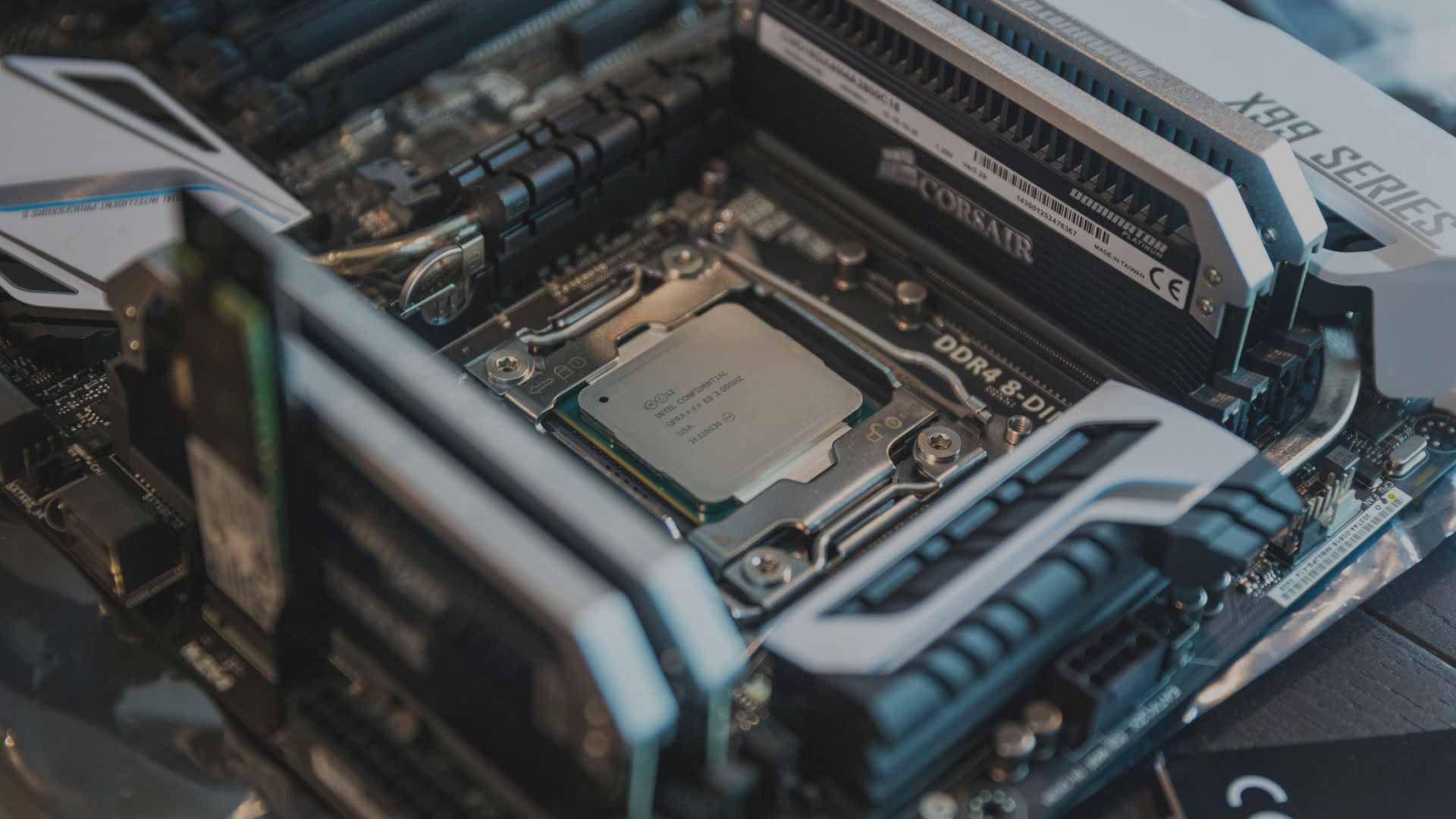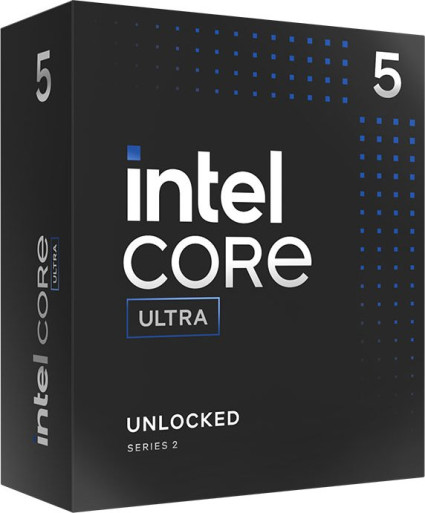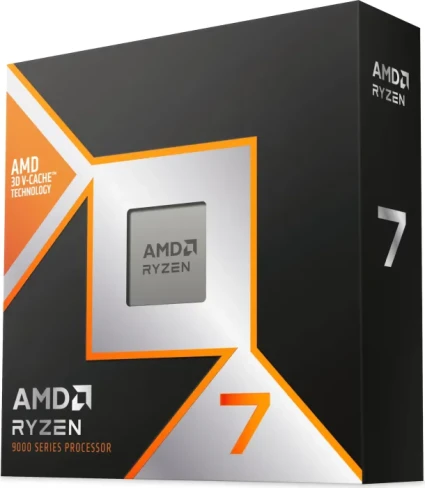
Intel Core Ultra 5 245K vs. AMD Ryzen 7 9800X3D
In diesem Vergleich von Intel Core Ultra 5 245K versus AMD Ryzen 7 9800X3D vergleichen wir die technischen Daten der beiden GPUs. Welche Grafikkarte ist schneller? Hier gibt es FPS & Benchmarks in Gaming und Anwendungen. Außerdem Daten zu Verbrauch, Effizienz (FPS pro Watt) und Preis-Leistung (FPS pro Euro).

Allgemeine Informationen
| Günstigster Preis |
|
|
| Serie | Intel Core Ultra 200 | Ryzen 9000 |
| Chip-Architektur | Lion Cove (P-Core) + Skymont (E-Core) | Zen 5 |
| Codename | Arrow Lake-S | Granite Ridge |
| Produktname | Intel Core Ultra 5 245K | AMD Ryzen 7 9800X3D |
Spezifikationen
Die Anzahl der Rechenkerne, die maximale Taktrate und die Größe des Cache können sich auf die Leistung in Spielen und Anwendungen auswirken. Mit 14 Kernen bietet der Intel Core Ultra 5 245K deutlich mehr Kerne als der AMD Ryzen 7 9800X3D mit 8 Rechenkernen. Der maximale Takt liegt beim Intel Core Ultra 5 245K mit 5.20 GHz identisch zum AMD Ryzen 7 9800X3D mit 5.20 GHz. Der Cache ist beim Intel Core Ultra 5 245K mit 26 MB L2-Cache + 24 MB L3-Cache zu 8 MB L2-Cache + 96 MB L3-Cache deutlich kleiner als beim AMD Ryzen 7 9800X3D.
| Kerne (Gesamt) | 14 | 8 |
| Anzahl P-Cores | 6C | 8C |
| Anzahl E-Cores | 8c | - |
| Basis-Takt | 4.20 GHz | 4.70 GHz |
| Takt P-Cores | 4.20 GHz | 4.70 GHz |
| Takt E-Cores | 3.60 GHz | - |
| Turbo-Takt | 5.20 GHz | 5.20 GHz |
| Turbo P-Cores | 5.20 GHz | 5.20 GHz |
| Turbo E-Cores | 4.60 GHz | - |
| Gesamter L2-Cache | 26 MB | 8 MB |
| Gesamter L3-Cache | 24 MB | 96 MB |
| Fertigung | TSMC 3 nm | TSMC 4 nm (CPU), TSMC 6 nm (I/O) |
| Rechenleistung | - | - |
| Leistungsaufnahme (TDP) | 125W (Processor Base Power) 159W (Maximum Turbo Power) |
120W |
Mainboard-Kompatibilität
Während der Intel Core Ultra 5 245K den Intel 1851 Sockel nutzt, ist der AMD Ryzen 7 9800X3D mit Mainboards für den Sockel AMD AM5 kompatibel. Die genaue Chipsatz-Eignung und die unterstützten PCIe-Lanes können Sie der Tabelle entnehmen.
| Sockel | Intel 1851 | AMD AM5 |
| Chipsatz-Eignung | Z890 | A620, B650, B650E, B840, B850, X670, X670E, X870, X870E (modellabhängig: PRO 600, PRO 665, X600) |
| PCIe-3.0-Lanes | - | - |
| PCIe-4.0-Lanes | - | - |
| PCIe-5.0-Lanes | 24x (verfügbar: 20) | 28x (verfügbar: 24) |
RAM-Kompatibilität
Während Sie beim Intel Core Ultra 5 245K bis zu 192 GB vom Typ DDR5 im Dual Channel verbauen können, unterstützt der AMD Ryzen 7 9800X3D bis zu 192 GB DDR5 Arbeitsspeicher.
| Speicher-Controller | DDR5 | DDR5 |
| Anzahl Speicherkanäle | Dual Channel | Dual Channel |
| max. Speichermenge | 192 GB | 192 GB |
| ECC-Unterstützung | ✓ | ✓ |
Grafik
| iGPU | ✓ | ✓ |
| iGPU-Modell | Intel Graphics | AMD Radeon Graphics |
| iGPU-Takt | 0,30-1,90GHz | 2,20GHz |
| iGPU-Einheiten | 4Xe/64EU/512SP | 2CU/128SP |
| iGPU-Rechenleistung | 1.95 TFLOPS (FP32) | 0.56 TFLOPS (FP32) |
| iGPU-Architektur | Xe-LPG / Gen 12.7 | RDNA 2, Codename "Granite Ridge" |
| iGPU-Interface | DP 2.1 UHBR20 (7680x4320@60Hz), eDP 1.4b (3840x2400@120Hz), HDMI 2.1 (7680x4320@60Hz) | DP 2.0, HDMI 2.1 |
| iGPU-Funktionen | 4x Display Support, 2x Codec Engines / Video Decode Boxes, Intel Quick Sync Video, AV1 encode/decode, H.265 encode/decode, H.266 encode/decode, VP9 encode/decode, HDCP 2.3, DirectX 12.1, OpenGL 4.5, OpenCL 3.0, Vulkan 1.0 | 4x Display Support, AMD Eyefinity, AMD FreeSync 2, AV1 decode, H.265 encode/decode, VP9 decode, DirectX 12.1, OpenGL 4.5, Vulkan 1.0 |
Sonstiges
| Freier Multiplikator | ✓ | ✓ |
| Stepping | B0, Spec Code: SRQCT | GNR-B0 |
| Heatspreader-Kontaktmittel | - | - |
| Temparatur max. | 105°C (Tjunction) | 95°C (Tjmax) |
| Fernwartung | ✓ (Intel vPro, Intel vPro Enterprise) | - |
| Einführung | 2024/Q4 (24.10.2024) | 2024/Q4 (7.11.2024) |
| Herstellergarantie | 3 Jahre bei Intel® Boxed-Prozessoren (Info DE/Info EN) | 3 Jahre bei AMD® Boxed-Prozessoren (Info EN) |
CPU-Funktionen
| AES-NI | ✓ | ✓ |
| AVX | ✓ | ✓ |
| AVX2 | ✓ | ✓ |
| Boot Guard | ✓ | - |
| CET | ✓ | - |
| DL Boost | ✓ | - |
| EIST | ✓ | - |
| GNA 3.0 | - | - |
| Idle States | ✓ | - |
| Instruction Set | ✓ | - |
| ISM | ✓ | - |
| MBEC | ✓ | - |
| Optane Memory Support | - | - |
| OS Guard | ✓ | - |
| Secure Key | ✓ | - |
| Speed Shift | ✓ | - |
| SSE4.1 | ✓ | ✓ |
| SSE4.2 | ✓ | ✓ |
| Thermal Monitoring | ✓ | - |
| VMD | ✓ | - |
| VT-d | ✓ | - |
| VT-x | ✓ | - |
| VT-x EPT | ✓ | - |
| XD Bit | ✓ | - |
Spiele

- AMD Ryzen 7 9800X3DAVG137.39 %1%121.82 %
- Intel Core Ultra 5 245KAVG100.00 %1%100.00 %

- Intel Core Ultra 5 245KAVG188.9 FPS1%154.8 FPS
- AMD Ryzen 7 9800X3DAVG286.3 FPS1%206.4 FPS

- Intel Core Ultra 5 245KAVG554.7 FPS1%289 FPS
- AMD Ryzen 7 9800X3DAVG902.5 FPS1%447.6 FPS

- Intel Core Ultra 5 245KAVG174.7 FPS1%115.3 FPS
- AMD Ryzen 7 9800X3DAVG200.4 FPS1%123 FPS

- Intel Core Ultra 5 245KAVG205.3 FPS1%140.7 FPS
- AMD Ryzen 7 9800X3DAVG266.6 FPS1%197.2 FPS

- Intel Core Ultra 5 245KAVG148.7 FPS1%123.7 FPS
- AMD Ryzen 7 9800X3DAVG188.5 FPS1%127.2 FPS

- Intel Core Ultra 5 245KAVG230 FPS1%156 FPS
- AMD Ryzen 7 9800X3DAVG385.7 FPS1%207.7 FPS

- Intel Core Ultra 5 245KAVG88.2 FPS1%65 FPS
- AMD Ryzen 7 9800X3DAVG97.5 FPS1%64.4 FPS

- Intel Core Ultra 5 245KAVG266.1 FPS1%151.8 FPS
- AMD Ryzen 7 9800X3DAVG360 FPS1%158.6 FPS

- AMD Ryzen 7 9800X3DAVG0.66 FPSIntel Core Ultra 5 245KAVG0.75 FPS

- AMD Ryzen 7 9800X3DAVG4.40 FPSIntel Core Ultra 5 245KAVG2.88 FPS
Produktivität
Produktivität

- AMD Ryzen 7 9800X3DAVG110.35 %Intel Core Ultra 5 245KAVG100.00 %

- AMD Ryzen 7 9800X3DPKT139939 PunkteIntel Core Ultra 5 245KPKT131342 Punkte

- AMD Ryzen 7 9800X3DPKT1712 PunkteIntel Core Ultra 5 245KPKT1391 Punkte

- AMD Ryzen 7 9800X3DPKT1121 PunkteIntel Core Ultra 5 245KPKT949 Punkte

- AMD Ryzen 7 9800X3DSEK211 SekundenIntel Core Ultra 5 245KSEK234 Sekunden

- AMD Ryzen 7 9800X3DPKT1370 PunkteIntel Core Ultra 5 245KPKT1334 Punkte

- AMD Ryzen 7 9800X3DPKT3360 PunkteIntel Core Ultra 5 245KPKT2952 Punkte

- AMD Ryzen 7 9800X3DPKT18477 PunkteIntel Core Ultra 5 245KPKT17950 Punkte

- AMD Ryzen 7 9800X3DSEK57 SekundenIntel Core Ultra 5 245KSEK60 Sekunden




